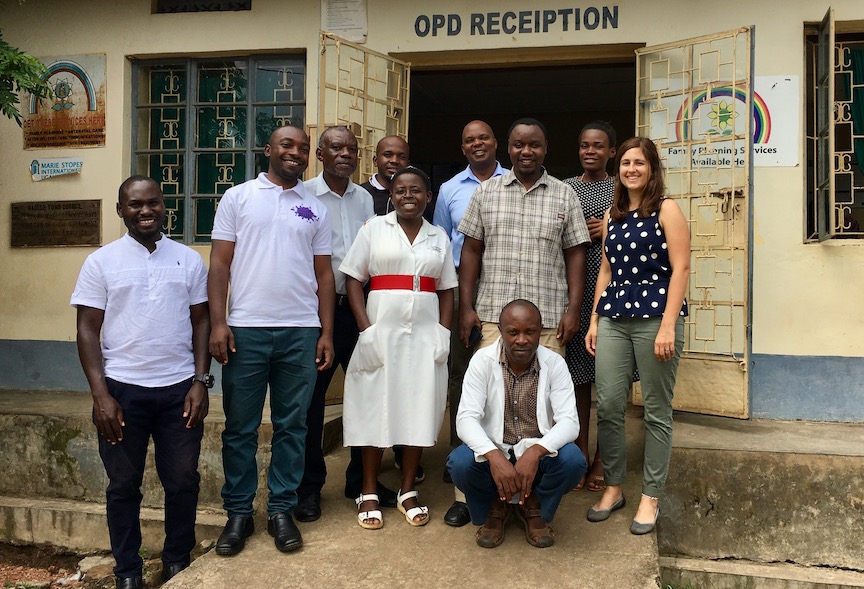
Research looks at leveraging diagnostic technology to improve management of pediatric infections in low-resource settings
Emily Ciccone, MD, MHS, a UNC clinical instructor and infectious diseases fellow, recently won first prize in the clinical research award session of the 2020 annual meeting of the American Society of Tropical Medicine and Hygiene. The award recognizes excellence in clinical research by young investigators.

Ciccone’s winning project is “Potential use of rapid, point-of-care diagnostics to reduce antibiotic prescription rates among pediatric patients presenting with respiratory illness in southwestern Uganda.” Her presentation described the preliminary findings of a study she developed while working with Ross Boyce, MD, MSc, and his research partner Edgar Mulogo of Mbarara University of Science and Technology in Kasese, Uganda, and her mentor, Jonathan Juliano, MD, MSPH.
Ciccone is interested in learning how to leverage diagnostic technology to improve management of pediatric infections in low-resource settings. “Many children present to outpatient clinics with fever and respiratory symptoms, and test negative for malaria. In part because of a lack of other available diagnostic tests, they almost always are prescribed antibiotics out of concern for bacterial pneumonia,” Ciccone says. “However, there’s increasing evidence that many of these illnesses are self-limited viral infections that do not require antibiotic treatment.” This inappropriate use of antibiotics can lead to an increase in antimicrobial resistance, or AMR, as high-income nations have seen from the over-prescription of antibiotics.
“This is a concern that was identified by our local collaborators as an issue that they were interested in pursuing,” Ciccone says. “I’m honored and grateful for this award. It’s really a recognition of the amazing work of our collaborators in Uganda.”
Beginning in October 2019, Ciccone gathered baseline information on children visiting a Kasese clinic with respiratory illnesses who tested negative for malaria. “We wanted to try point-of-care diagnostics, simple tools that can be implemented in resource-limited settings, to see if they could be used in future studies to reduce antibiotic prescription rates,” she says. Some of the assays were cassettes that test a blood or nasal swab sample and give a result within 10 minutes without needing refrigeration or electricity, while others required a small analyzer. The specific tests included ones for influenza, Streptococcus pneumoniae (a common bacterial cause of pneumonia), and the clinical biomarkers, C-reactive protein and procalcitonin, which can be elevated in the setting of bacterial illness.
They found that the point-of-care tests were able to be performed at the health center despite limited laboratory capacity, and that almost all of the children received antibiotics. However, using the results of point-of-care influenza and biomarker testing, antibiotics could potentially have been avoided in up to 90 percent of the children. The results will inform future research projects assessing the safety of incorporating point-of-care testing into clinical management algorithms for respiratory illness in children.
